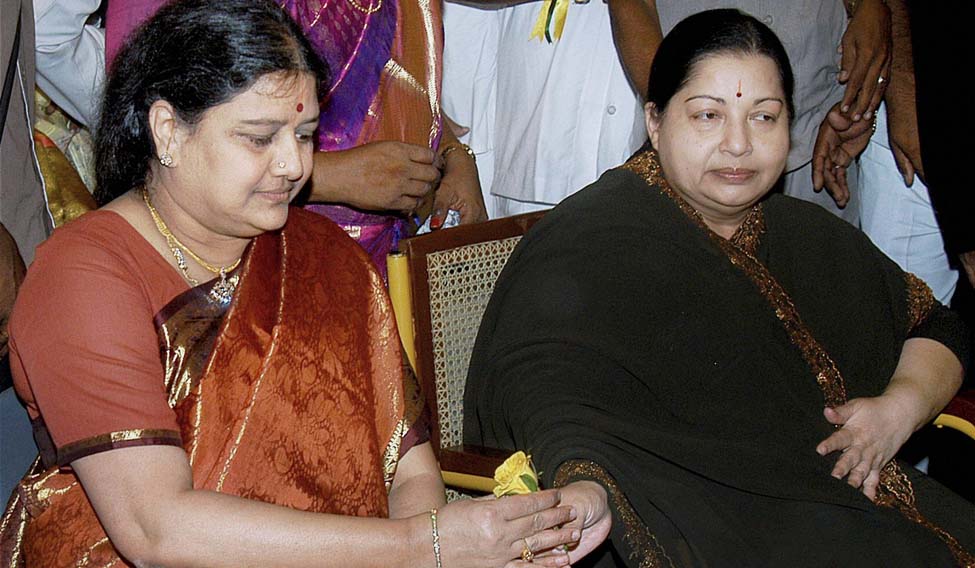Exactly twenty years before, the then chief minister J.Jayalalithaa was waiting for what she expected to be the best birthday gift of her life. But, courtesy a police officer's one line statement standing in the witness box inside the special court hall, her dreams came crashing down like a house of cards. N.Nallamma Naidu, the then investigation officer of the infamous disproportionate assets case, unseated one woman from the chief minister's chair and shattered the dreams of another who was eyeing it.
His investigations and depositions had ushered a seismic shift in the five decade long history of Dravidian politics in Tamil Nadu. Clad a simple yellow shirt and a well-ironed white dhoti, this 78-year-old retired officer’s memories are still fresh as he starts talking about the good old days of investigation and the intimidation that followed. Naidu had retired as SP of the directorate of vigilance and anti-corruption, the state’s investigating agency against corruption and economic offences.
It all began when he was authorised to investigate the disproportionate assets and the alleged money laundering by the then chief minister Jayalalithaa Jayaram and her friend V.K.Sasikala. The latter is currently cooling her heels in Parappana Agrahara prison in Bengaluru.
The case was first registered on September 9, 1996. Naidu, after initial investigation, submitted the final report to then governor in 1997. The chargesheet was filed on June 4, 1997, thus setting the tone for the case. Naidu and his officers knew it was an open and shut case.
The investigation proceeded judiciously, as did the trial. But the fate changed in the year 2000, when all the prosecution and the defence witnesses were set to be examined. Naidu was the last witness, but he was made to step down from the box. The defence lawyers got him down saying they wanted some of the prosecution witnesses to be cross examined.
“There were lots of handicaps. I was harassed, threatened, intimidated and what not,” the police officer recalls.
After the year 2000, there was a lull in the progress of the case. Subsequently, Jayalalithaa won as the chief minister of the Tamil Nadu for second term in 2001. “Many of the prosecution witnesses turned hostile. All witnesses, including the bureaucrats, superintending engineers, executive engineers, who helped in the case were made to withdraw their original statements by means of coercion and threat,” recalls Naidu. It even went to the extent of one senior police officer, who actually registered the case, withdrawing his statement. “He withdrew his original statement, authorising me to investigate the case.”
This was when Naidu felt that things were starting to go north. The case itself became illegal, with the senior officer withdrawing his authorisation letter.
"The witnesses had become hostile,” he says. And it was on February 2, 2003, he was summoned to appear before the special court. “I did not agree with defence counsel, who alleged that I had discussed the case with the political powers in the state.” Naidu was also blamed for having twisted the case to a disproportionate stature. The retired officer told the witness box that he was above politics. The defence regaled him with arguments that the DMK party organ, Murasoli, appreciated him on February 6, days after examination of the witnesses commenced.
Before deposing, the shrewd officer that he was, Naidu went into the court a little early and asked permission from the judge to peruse his investigation records before giving evidence.
“My own investigation reports weren’t shown to me. So the next day, I went into the witness box and called for the concerned files. They were brought to the court. The authorisation letter was identified and filed in the court. This was vehemently attacked by the defence lawyer. The court was also hesitant to mark it on the plea that the officer who issued the authorisation to investigate the case had denied any such issue,” recalls Naidu.
The case saw conviction for Jayalalithaa and others in 2014. Sasikala, Elavarasi and Sudhakaran were jailed in February 2017. But Naidu’s memories, of the pains that he took to consolidate the case, are still fresh in his mind.





